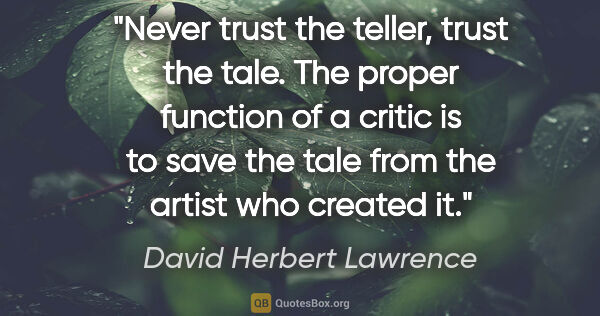Functional Quotes (page 22)
[L]ife is a phenomenon in need of criticism, for we are, as fallen creatures, in permanent danger of worshipping false gods, of failing to understand ourselves and misinterpreting the behaviour of others, of growing unproductively anxious or desirous, and of losing ourselves to vanity and error. Surreptitiously and beguilingly, then, with humour or gravity, works of art--novels, poems, plays, paintings or films--can function as vehicles to explain our condition to us. They may act as guides...
Alain de Botton
This formulation will not please the mass man or the collective believer. For the former the policy of the State is the supreme principle of thought and action. Indeed, this was the purpose for which he was enlightened, and accordingly the mass man grants the individual a right to exist only in so far as he is a function of the State. The believer, on the other hand, while admitting that the State has a moral and factual claim on him, confesses to the belief that not only man but the State...
Carl Jung
Government has three primary functions. It should provide for military defense of the nation. It should enforce contracts between individuals. It should protect citizens from crimes against themselves or their property. When government-- in pursuit of good intentions tries to rearrange the economy, legislate morality, or help special interests, the cost come in inefficiency, lack of motivation, and loss of freedom. Government should be a referee, not an active player.
Milton Friedman
Forgiveness is an act of the will, and the will can function regardless of the temperature of the heart" "It is not my ability, but my response to God's ability that counts."Let God's promises shine on your problems."Worry is a cycle of inefficient thoughts whirling around a center of fear.
Corrie Ten Boom
Those who are to conduct a war cannot in the nature of things, be proper or safe judges, whether a war ought to be commenced, continued, or concluded. Thy are barred from the latter functions by a great principle in free government, analogous to that which separates the sword from the purse, or the power of executing from the power of enacting laws.
James Madison
When I say or write something, there are actually a whole lot of different things I am communicating. The propositional content (i. e., the verbal information I'm trying to convey) is only one part of it. Another part is stuff about me, the communicator. Everyone knows this. It's a function of the fact there are so many different well-formed ways to say the same basic thing, from e. g. "I was attacked by a bear!" to "Goddamn bear tried to kill me!" to "That ursine juggernaut did essay to sup...
David Foster Wallace
Things begin, things end. Just when we seem to arrive at a quiet place, we are swept up, suddenly, between the body's smoothe, functioning predictability, and the need for disruption. We do irrational things, outrageous things. Or else something will come along and intervene, an unimaginable foe.
Carol Shields
I look at the Augusteum,and I think that perhaps my life has not actually been so chaotic, after all. It is merely this world that is chaotic, bringing changes to us all that nobody could have anticipated. The Augusteum warns me to not to get attached to any obsolete ideas about who I am, what I represent, whom I belong to, or what function I may once have intended to serve. Yesterday I might have been a glorious monument to somebody, true enough--but tomorrow I could be a fireworks...
Elizabeth Gilbert
Whatever language we speak, before we begin a sentence we have an almost infinite choice of words to use. A, The, They, Whereas, Having, Then, To, Bison, Ignorant, Since, Winnemucca, In, It, As . . . Any word of the immense vocabulary of English may begin an English sentence. As we speak or write the sentence, each word influences the choice of the next its syntactical function as noun, verb, adjective, etc., its person and number if a pronoun, its tense and number as a verb, etc. ,etc. ...
Ursula K. Le Guin

To inquire into what God has made is the main function of the imagination. It is aroused by facts, is nourished by facts; seeks for higher and yet higher laws in those facts; but refuses to regard science as the sole interpreter of nature, or the laws of science as the only region of discovery.
George MacDonald


